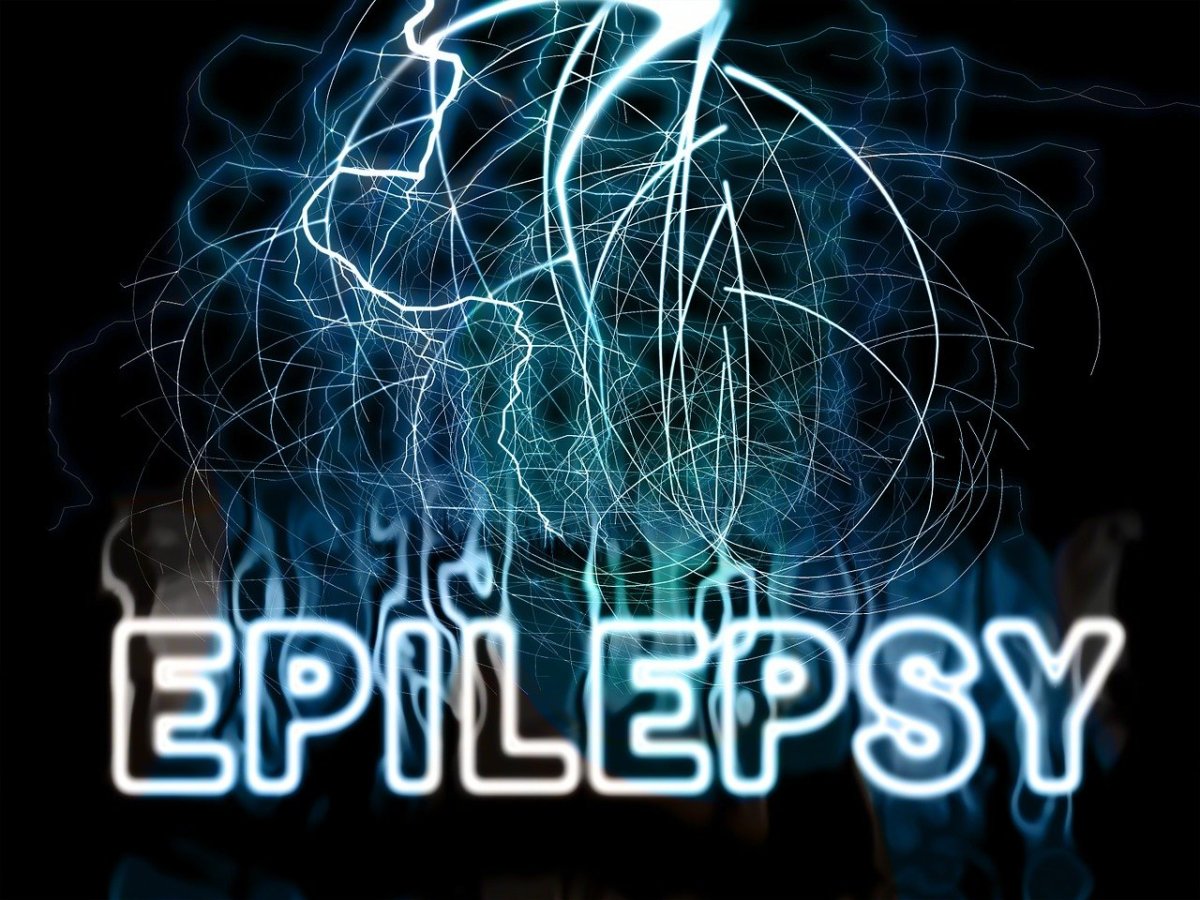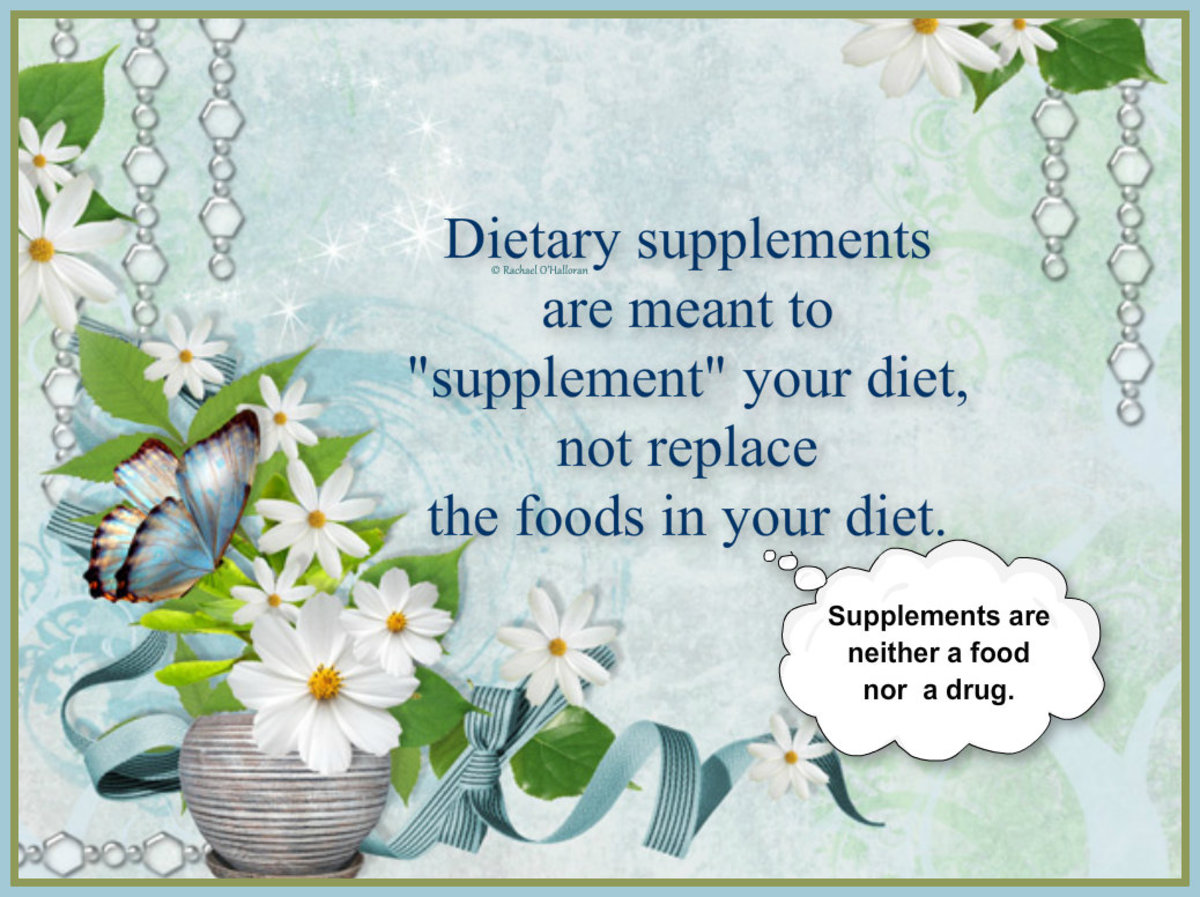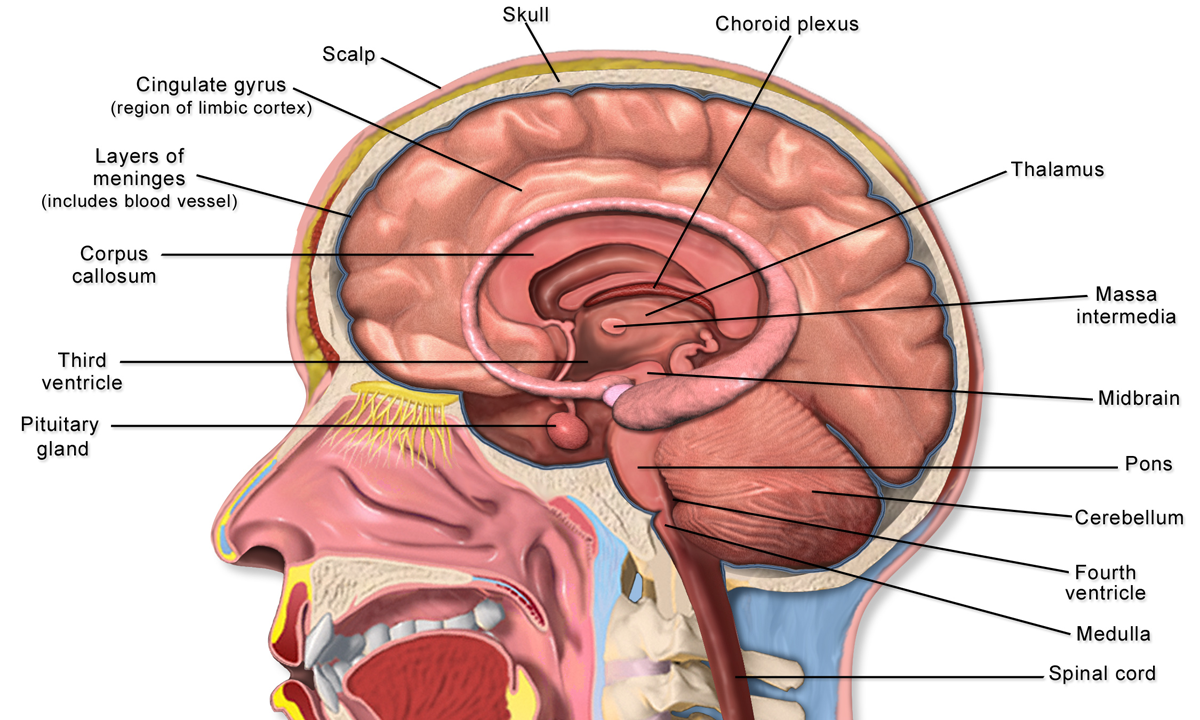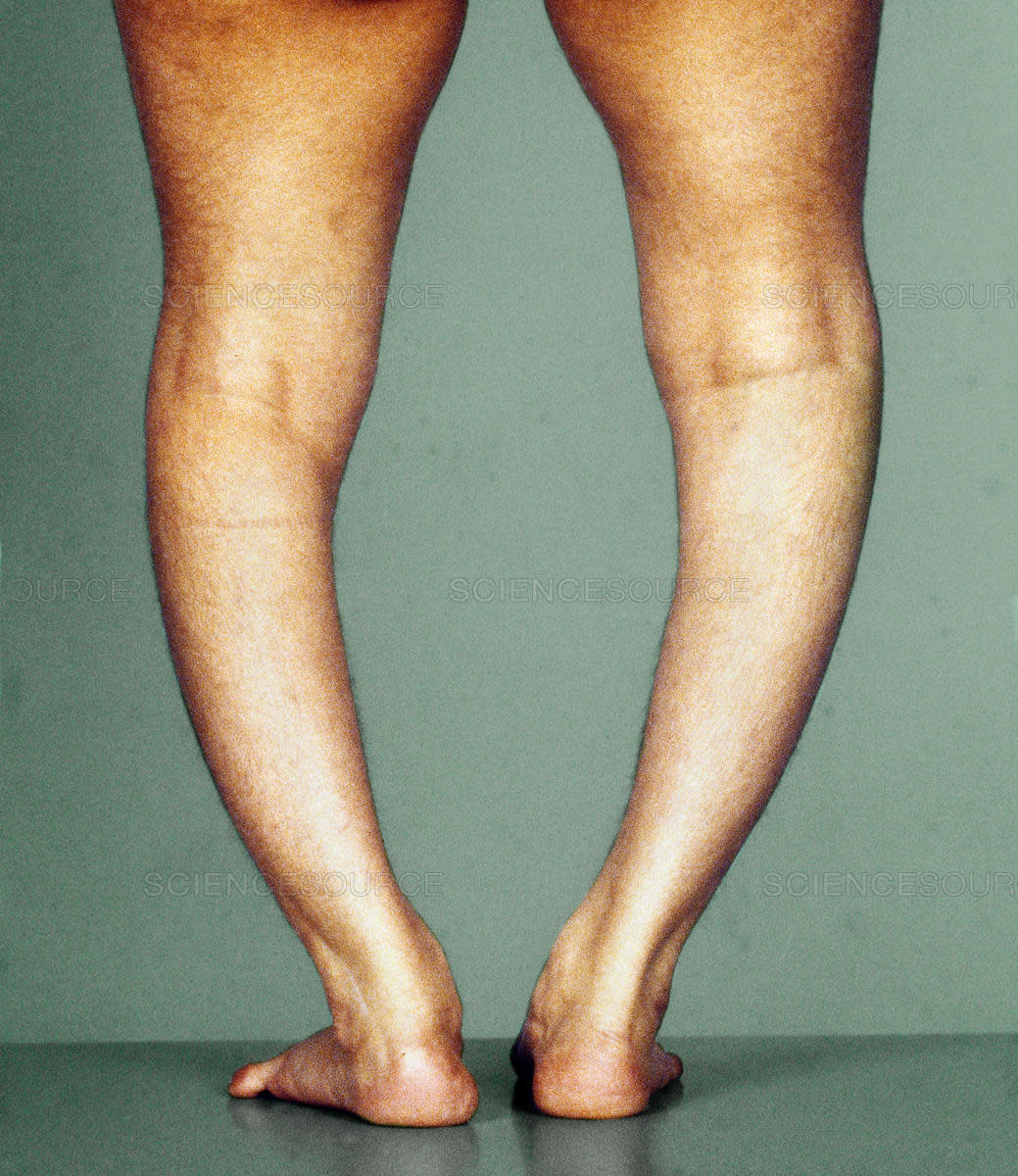Epilepsy and Nutrition
General Nutritional Guidelines
We hear a great deal these days about what is a healthy diet and the general recommendations are
Eat a variety of foods;
Maintain a healthy weight;
Eat a diet low in bad fats but high in goods fats;
Use sugar, salt and alcohol in moderation;
Eat plenty of fresh fruit and vegetables;
Drink four pints of water a day.
A good quality multinutrient is also recommended, to help keep us in optimal health. It will contain all the more important vitamins and minerals and various herbs and other substances.
Why Those With Epilepsy Need Special Nutrition
People with epilepsy are often more sensitive to the world around them than others, therefore it is important to ensure that their nutrition is as well balanced as possible
There are many potential causes of seizures. Those related to nutrition are hunger, hypoglycemia (low blood sugar level), hypocalcemia (low calcium levels in the blood), nutritional imbalances, alcohol intoxication and alcohol withdrawal. It is essential to try to remove these possible problems.
Supplements which may Help Those With Epilepsy
A good quality multinutrient can be supplemented with any of the nutrients listed below, however you will probably find that most of them are already included in it. Have a look at the list of contents before deciding on further supplements.
Vitamin B is a combination of vitamins including thiamine, pyridoxine, biotin, folic acid and cobalamin. When taking vitamin B it is usually better to take a B complex rather than any other individual member. This is because they work together and a balance of the parts is important. If you feel stressed then you will probably require a high intake of a B Complex. It is often necessary to have a fairly high intake for a short time until you find that you are fairly relaxed, and then cut down the dosage. A daily dosage of 100-200mg may be required, this is best split into doses 2 or 3 times a day. The best way of judging if you are having too much vitamin B is the colour of your urine. Excess of certain B vitamins will cause it to be very yellow. This is the only side effect and does no damage, but if you find that your urine is still yellow even when you are due to take your next pill, then you are probably having too much and should cut down.
Other symptoms of inadequate vitamin B are tiredness, premenstrual syndrome, lack of appetite, lack of concentration and eye problems. B complex deficiencies are particularly common in those who smoke, drink alcohol, don't eat much meat and who are on the contraceptive pill.
B6 has known properties as an anticonvulsant. However more than 200mg a day of B6 taken regularly for over a year can cause problems. That sort of intake should not be necessary, except as a short term measure. B6 can also be destroyed by some of the anticonvulsants.
Often folic acid is recommended by the doctors since it is destroyed by many anticonvulsants. It sometimes gives a reduction in seizure frequency and it often gives an improvement in peripheral symptoms such as mental state, mood, intellectual speed, alertness, concentration, self confidence, independence and sociability. However, if you are pregnant and not taking any B supplements it is probably a very good idea to have some extra folic acid or brewer's yeast.
Biotin helps fatty acid production and the utilisation of other B vitamins, it also promotes healthy nerve tissue. A deficiency in biotin can lead to hair loss, depression, anaemia, insomnia, loss of appetite, muscular pain, nausea, tongue soreness, inflammation and pallor of the skin and mucous membranes and an elevation of blood glucose and cholesterol levels.
A deficiency of B12 can lead to tiredness, loss of appetite, poor memory, paranoia, pernicious anaemia and a smooth sore tongue. The best source of B vitamins are brewer's yeast, yeast extract, offal, wheat and rice.
Vitamin D is depleted by the intake of anticonvulsants, supplements should not exceed 10g. The recommended daily intake in most countries is 2.5g, although in some countries it is as much as 10g. If you spend a reasonable length of time in the sun it is probably not necessary to have supplements. However, in the winter, or if you don't like the sun, supplements may be necessary. Deficiency is more common in vegetarians and those of Asian descent (due to the diet and skin type). Deficiency symptoms are muscular spasms and weakness, bone pain, and brittle bones. The best sources of vitamin D are sunlight, fish oil, oily fish, tuna, eggs, butter and milk.
Vitamin E has been indicated in research to reduce seizure rate by as much as 50%. Generally it works particularly well when used with selenium. Vitamin E is destroyed by cooking and the recommended daily intake is at least 30mg. Deficiency will result in apathy, irritability and lack of concentration. It reduces the oxygen needs of the muscles which means that it should help if your problem is affected by a lack of oxygen to the brain, for example, if you have a chest problem. A common intake for treatment is 500IU or more. Deficiency can be caused by contraceptive pills and air pollution. The best sources of vitamin E are vegetable and fish oils, wheatgerm, leafy vegetables, egg yolk, legumes, lettuce, peanuts and wholewheat flour.
Vitamin K affects blood coagulation, bone formation and the conversion of glucose into glycogen for storage in the liver. It increases the resistance to infection in children. It is found in yoghurt, alfalfa, egg yolk and green leafy vegetables.
Calcium can be used with the treatment of epilepsy due to its sedative effects. It also affects the absorption of magnesium, so it is often a good idea to take the two together. It is possible to get pills containing a combination of calcium and magnesium. Extra calcium is given to those who have bone problems, allergy problems, depression, anxiety, menstrual pains and muscle and joint pains. If you are on the contraceptive pill, pregnant or breastfeeding, extra calcium may be needed. The recommended intake of calcium is 500-1500mg. The best sources of calcium are cheese, fish, nuts, root vegetables and eggs.
Chromium is important for blood sugar control. It stimulates the production of essential nerve substances. Deficiency can result in nervousness. Chromium is sometimes used in the treatment of low blood sugar. Those most likely to be at risk from chromium deficiency are the elderly, those who drink alcohol, who are slimming or pregnant or have a high intake of refined foods. There is no recommended daily intake but a safe and adequate range is given as 50-200g. The best source of chromium are yeast, liver, cheese, fruit juices, wholewheat and wheatgerm.
Copper helpsproduce enzymes that break down proteins to rebuild the body tissue. It also helps convert the body's iron into haemoglobin and to utilise vitamin C. A deficiency can lead to anaemia, baldness, diarrhoea, general weakness, impaired respiratory function and skin sores.
Magnesium. Convulsions are a known effect of a magnesium deficiency, as are weakness and tiredness, nervousness, muscle cramps, tremors and twitching, especially around the eyes. The recommended daily intake is about 400mg. More may be needed if you suffer from allergies, premenstrual syndrome or menstrual cramps, are suffering from morning sickness or hypoglycemia, or on the contraceptive pill or antibiotics. More magnesium is needed for those who have a high intake of fluoride - this can occur in areas with fluoridated water and in those who drink a lot of tea. The suggested supplementation of magnesium is 500-1000mg. Magnesium tablets should be taken in conjunction with calcium. There are tablets available which combine the two. This is a very important nutrient in epilepsy. The best sources of magnesium are soya beans, nuts, brown rice, fish and lentils.
Manganese can be used to help in the treatment of epilepsy. One of the functions of manganese is to maintain a healthy nervous system. The recommended daily intake is between 2.5mg and 5mg, but up to half this intake can be provided by tea drinking. The best source of manganese are soya beans, nuts and brewers yeast.
Selenium is very useful in detoxifying the body. However, it can be fatal if taken in excess, the maximum daily dose is 200mcg and no more should be taken. It seems to help in cancer and angina cases as well as arthritis and high blood pressure. Its most common natural sources are organ meats, fish and shellfish.
Zinc. The quantity of zinc in the diet is greatly reduced by the processing of food. It is also reduced by anticonvulsants, smoking, alcohol and the contraceptive pill. The recommended daily intake is about 12mg although at least 50mg is often recommended. It is thought that intakes of over 150mg may occasionally have side effects. Zinc is used to treat mild mental conditions and to supplement schizophrenics. The most obvious sign of deficiency is white spots on the finger nails, eczema of the face and hands, acne, mental apathy and loss of sense of taste and smell. The best sources of zinc are oysters, meat, pumpkin seeds, cheese and eggs.
Carnitine is an amino acid and is required to transport fat through the cell walls. It is the major source of energy for the muscles.
Digestive Enzymes. It is possible that the number of seizures is increased by an inefficient digestive system since this means the necessary nutrients will not be absorbed completely from the food eaten. In this case extra digestive enzymes will help this absorption.
Dimethyl glycine (DMG) is also known as B15. It is an amino acid that has been used to treat epilepsy. It helps to stimulate your immune system. Therefore a lack of this can mean that you keep getting infections. It also helps increase the amount of oxygen to the brain, so may be particularly helpful if you have chest problems. Supplements of about 90mg twice a day can have a noticeable effect.
EFA. There has been a great deal of talk about fats and it is rather confusing. Basically the fats in their natural form are alright but those that are processed can cause a problem. EFAs are Essential Fatty Acids and they help in energy production, formation of red blood pigment, joint lubrication, transportation of cholesterol, boosting the immune system and prevention of allergies. Good sources of EFA are flax oil, hemp oil and safflower oil, fish oil, starflower oil and evening primrose oil.
Ginkgo Biloba is a herb that has proved to be very helpful in restoring memory function. Research has even indicated that it is of help in Alzheimer's disease.
Taurine is one of the lesser known amino acids, but it is known to help in the treatment of epilepsy. The recommended daily dosage of this is 1-3g. The balance of amino acids can be disturbed in those with epilepsy and additional taurine can help balance this and lead to improved brain function. It also helps balance the zinc/copper ratio because often zinc is low and copper high in those with epilepsy. Adequate zinc is important in the correct processing of taurine. This is one of the most important nutrients used to treat the condition. Taurine is produced in the body and is found in animal proteins.
Things to be avoided with epilepsy
There are certain foods, herbs and additives that can cause seizures in sensitive people, although none of them will have that reaction on all people with epilepsy. So if you have been taking any of the items listed below and you are certain it has not caused a seizure in you, then you will probably be alright. There are also certain items which people may be allergic to and obviously these can be specific to the individual. The most common causes of problems are the following.
Monosodium Glutamate (E621). This is a flavour enhancer found in sausages, salami, Chinese takeaways and most crisps. Research has shown it to interfere with anticonvulsant medication and induce seizures.
Stimulants such as coffee and alcohol should be minimised.
Products with high levels of pesticides, where possible eat organic foods.
Aspartame. Various research has been done with conflicting evidence about whether aspartame can cause seizures.
St Johns Wort is a herb that has also produced conflicting research, although it is generally recommended that those with epilepsy avoid it. However it can be very good for depression.
Evening Primrose Oil may lower the seizure threshold and so may lead to seizures in those with a predisposition to temporal lobe seizures.
Alcohol is something that is recommended to only be taken with moderation in those with epilepsy.
The following additives may be associated with epileptic seizures and may be worth avoiding.
E210 - Benzoic Acid
E141 - Copper Complexes of Chlorophyllins and Chlorophyll
E173 - Aluminium
E519 - Cupric Sulphate
E541 - Sodium Aluminium Silicate
E554 - Aluminium Sodium Silicate
E556 - Aluminium Calcium Silicate
E559 - Aluminium Silicate
Special Guidelines for Women with Epilepsy
With women, seizures often occur at period time and are basically just a symptom of the change in hormones. This can often be the result of mild hypoglycemia, also symbolised by the increased chocolate cravings that women experience. The recommended procedure is to try to eat three main meals per day with three smaller snacks in between all of which should contain starchy foods. Chromium should also be taken.
Ketogenic Diet
The ketogenic diet is a high fat diet which seems to help some people, especially children, with epilepsy. Long term studies on patients on the ketogenic diet indicates that it does not raise cholesterol levels. If a child's seizures reduce after vomiting or starving then it is likely that this diet may work. According to research 42-73% of children who follow the diet stop having seizures or experience a reduction.
Hypoglycemia
Hypoglycemia (low blood sugar) is caused by the inability of the pancreas to process sugar effectively. Symptoms are varied but include mood swings, tiredness, confusion, allergies and fainting. Some people say that about 50% of the population have hypoglycemia to some degree. It is most common in those who have too much sugar or alcohol in their diet.
Contacts
Nutri Centre, 7 Park Crescent, London W1, UK
Possesses an enormous range of supplements and books, does mail order.
Epilepsy Toronto
http://www.epilepsytoronto.org/
References
National Association for Premenstrual Syndrome
41 Old Road, East Peckham, Kent TN12 5AP, UK
Website: http://www.pms.org.uk/
The Ketogenic Resource
http://www.mynchen.demon.co.uk/
Further Information
Fats that Heal, Fats that Kill (1993) Erasmus, Udo, Alive Books
Budd, Martin, (1983) Low Blood Sugar: Hypoglycaemia the Twentieth Century Epidemic, Sterling Publications
Freeman, John Mark, (2000) The Ketogenic Diet: A Treatment for Epilepsy, Demos Medical Publishing
Thomas, Caroline (1993) Epilepsy - A Holistic Approach, Images












